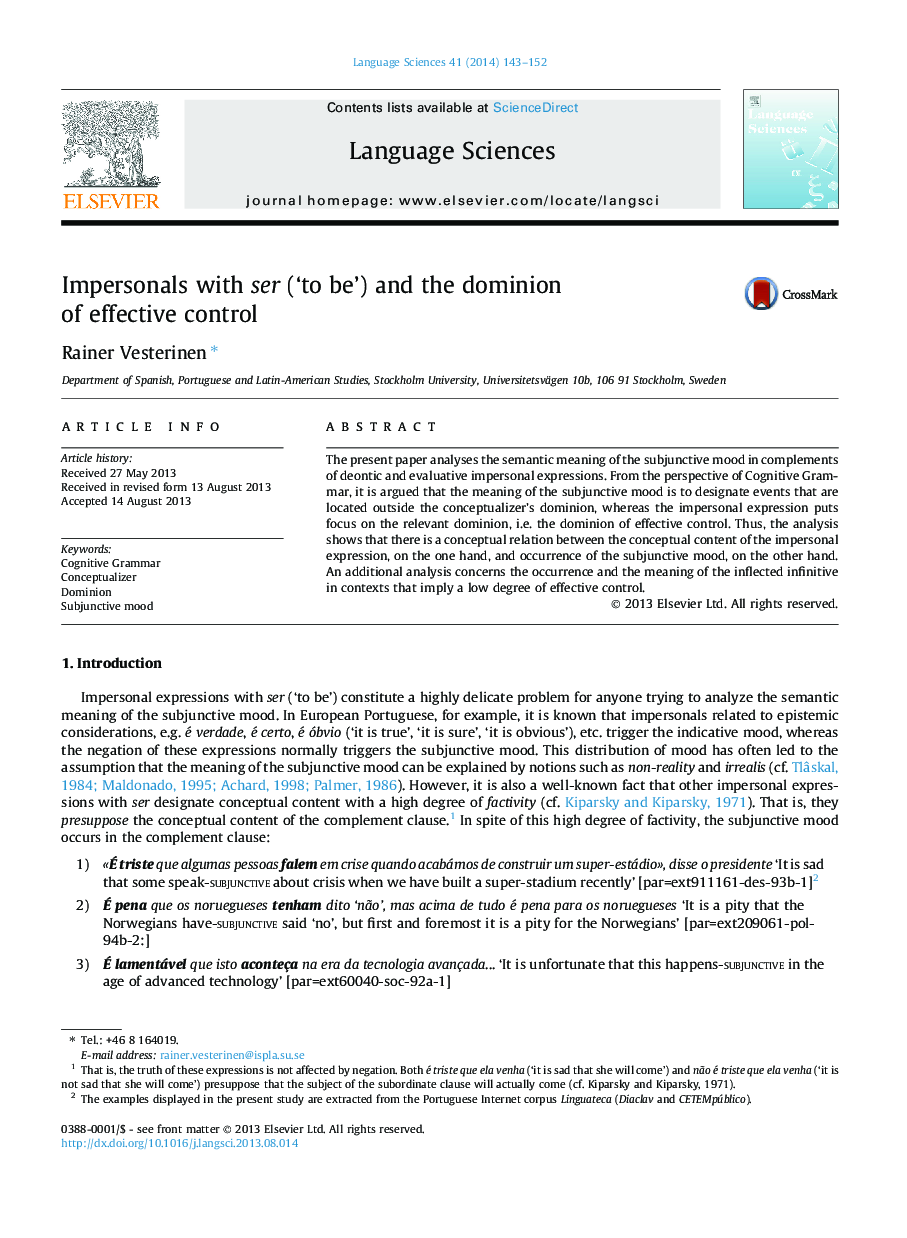| Article ID | Journal | Published Year | Pages | File Type |
|---|---|---|---|---|
| 1103149 | Language Sciences | 2014 | 10 Pages |
•The paper offers a unified account of the meaning of the Portuguese subjunctive mood.•It presents a natural explanation for the variation between the subjunctive mood and the inflected infinitive.•It covers the heterogeneous class of impersonal expressions with ser (‘to be’).•It focuses on the conceptual relation between the main clause and mood choice.•The notion of dominion is a main tool for interpreting the subjunctive mood.
The present paper analyses the semantic meaning of the subjunctive mood in complements of deontic and evaluative impersonal expressions. From the perspective of Cognitive Grammar, it is argued that the meaning of the subjunctive mood is to designate events that are located outside the conceptualizer’s dominion, whereas the impersonal expression puts focus on the relevant dominion, i.e. the dominion of effective control. Thus, the analysis shows that there is a conceptual relation between the conceptual content of the impersonal expression, on the one hand, and occurrence of the subjunctive mood, on the other hand. An additional analysis concerns the occurrence and the meaning of the inflected infinitive in contexts that imply a low degree of effective control.
